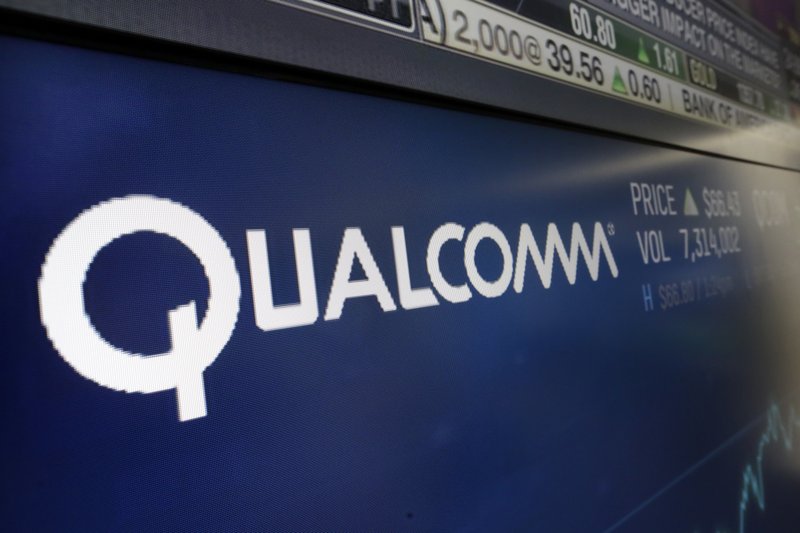SAN FRANCISCO -- A federal appeals court is temporarily protecting Qualcomm from an antitrust ruling that would have forced the chipmaker to change drastically how it licenses key technology for connecting smartphones to the Internet.
The 9th U.S. Circuit Court of Appeal granted a stay Friday in a high-stakes case that has pitted U.S. government agencies against one another while magnifying Qualcomm's pivotal role in an upcoming shift to ultrafast wireless connections, known as 5G.
The latest twist will prevent the Federal Trade Commission from enforcing key provisions of a lower court ruling that said Qualcomm abused its portfolio of about 140,000 patents to stifle competition.
U.S. District Judge Lucy Koh found in May that Qualcomm's "no license, no chips" policy unfairly leveraged the company's market position to force customers to pay inflated prices for chips and royalties for their technology. She ordered the company to end the policy and renegotiate some of its contracts.
The Justice Department, joined by the Defense and Energy departments, had taken the unusual step of urging the appeals court to stay, or put on hold, parts of that ruling in the interests of national security. They argued the ruling would hobble Qualcomm so severely that the San Diego company would have to curtail much-needed investments in the evolution to 5G, opening the door for China to gain an advantage in a critical area of technology.
Bruce Hoffman, director at the FTC's competition bureau, said he was disappointed in the court's ruling and noted that only part of the court's ruling was put on hold. Qualcomm still can't enter into exclusive deals on modem chips, can't interfere with any customer's ability to communicate with government agencies and must submit to monitoring, which the FTC said promotes competition. Qualcomm didn't ask the appeals court to put those aspects on hold.
"The Bureau of Competition will monitor Qualcomm's conduct relating to the ongoing injunctive provisions, and we stand ready to evaluate any information from industry participants relating to whether Qualcomm is complying with its obligations," Hoffman said.
Qualcomm's stock shed $3.63, or 4.7%, to $73.52 in Friday's afternoon trading, primarily driven down by a widespread sell-off in major technology companies as investors worried about how the United States' escalating trade war with China will affect the industry's future profits.
Qualcomm is a leader in the 5G technology, along with European-based Ericsson and Nokia and China's Huawei, a company that has been blacklisted by President Donald Trump's administration because of suspected ties to its home country's government.
The shift to 5G during the next decade is expected to enable advances in robotics, wearable devices such as smartwatches and smart glasses, self-driving cars and communications.
The appeals court cited concerns from the Justice, Defense and Energy departments and said Qualcomm had "demonstrated the probability of irreparable harm" if Koh's ruling is immediately imposed.
Qualcomm argued Koh's provisions would have unfairly eroded its revenue and potentially given away its technological secrets. The stay will prevent that from happening while Qualcomm pursues its appeal. Oral arguments are scheduled for January.
Until then, the stay will allow Qualcomm "to continue to invest in inventing the fundamental technologies at the heart of mobile communications at this critical time of transition to 5G," said Don Rosenberg, the company's general counsel.
The chipmaker is unusual in the chip industry because it gets the majority of its profit from fees on patents that cover the fundamentals of how modern phone systems work. Apple Inc., Samsung Electronics Co. and all of the world's biggest phone makers have to pay whether or not they use its chips. That arrangement has caused intense legal fights and regulatory scrutiny around the world for Qualcomm.
Information for this article was contributed by Michael Liedtke of The Associated Press; and by Susan Decker and Ian King of Bloomberg News.
Business on 08/24/2019

